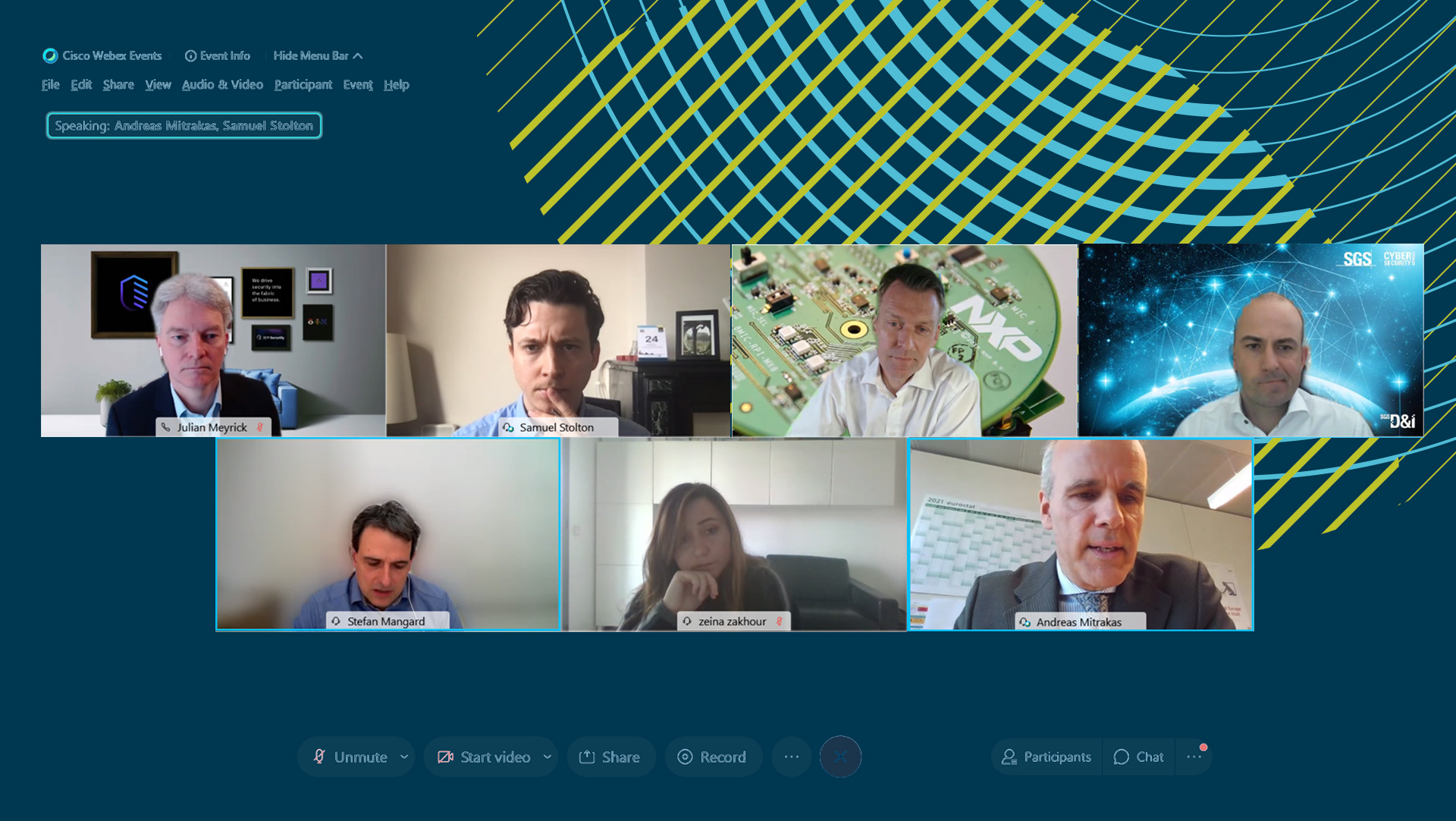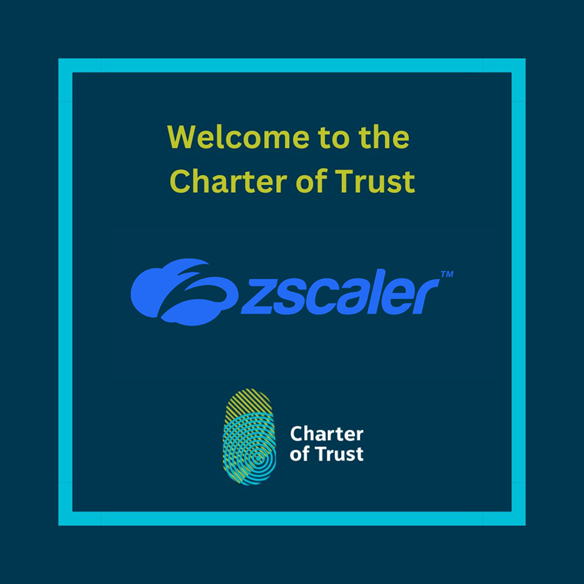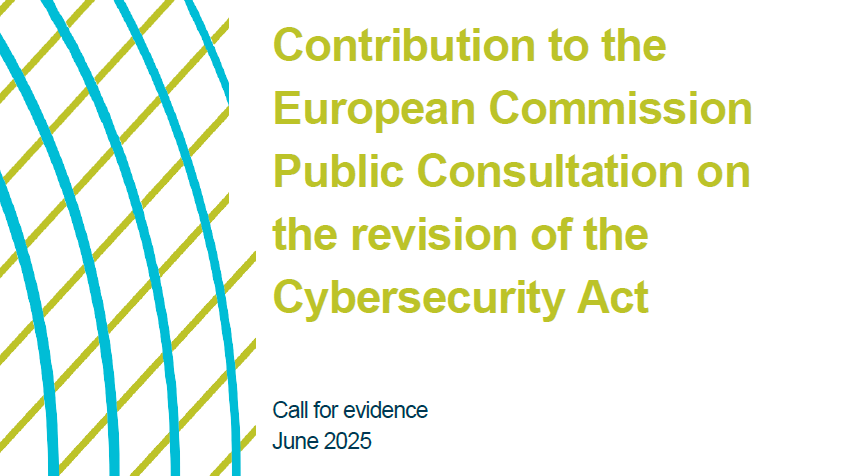On February 25, the Charter of Trust held its latest virtual Brussels Roadshow, on the theme of ‘Raising the Bar in Cybersecurity Resilience’.

Over 140 people from across the Charter of Trust’s membership, the EU institutions, and the broader ecosystem of Brussels-based stakeholders tuned in to hear Natalia Oropeza, Chief Cybersecurity Officer and Chief Diversity Officer from Siemens, preview the direction of the Charter in 2021. She was followed by Lorena Boix Alonso, Director for Digital Society, Trust & Cybersecurity at the European Commission, who discussed the Commission’s plans for cybersecurity, especially in light of the COVID-19 pandemic and the SolarWinds hack.
Our first panel looked at the role of certification in raising resilience. Andreas Mitrakas from ENISA emphasised the role of trust in cybersecurity and outlined the approach taken by ENISA towards certification schemes. Representatives from Charter of Trust Partners NXP Semiconductors and SGS gave their perspectives, touching on the need for certification schemes to be implemented across the risk spectrum and emphasising the importance of edge computing.
On the second panel, Charter of Trust Partners Atos and IBM, as well as Prof Stefan Mangard from TU Graz, addressed the human element of cybersecurity. They touched on the use of AI to support human efforts to combat cybercrime, collaboration between industry and academia, and the role of collaboration hubs in sharing threat intelligence and improving collaboration overall. A key takeaway was the importance of the cultural context when it comes to working with technology.
The third panel looked at what lessons could be drawn for supply chains from the SolarWinds attack. Siemens, TÜV SÜD and AES, all Charter of Trust Partners, emphasised that no organisation had zero risk of being attacked. They discussed the implications of different levels of risk, the need for metrics and data related to cyberattacks, and outlined some of the ways that the Charter of Trust has sought to help provide an approach for medium- and low-risk targets.
The Charter of Trust will be looking at all these topics in more depth over the coming months. To keep informed, sign up to our newsletter and follow us on Twitter and LinkedIn.


You may also like

Charter of Trust Welcomes Zscaler
Zscaler is a leading cloud enterprise security provider helping global businesses accelerate their digital transformation by becoming more agile, efficient, resilient, and secure.
With Zscaler as a partner in the Charter of Trust, we aim to strengthen global cyber resilience through trust – by fostering actionable collaboration between industry leaders, governments, and public-private platforms. Zscaler brings robust expertise and innovation to the table, making it the ideal partner to drive this mission forward.
“Zscaler is excited to drive meaningful change alongside our new partners, laying a foundation of trust essential for successful digital transformation,” said Sam Curry, Zscaler CISO. “In today’s world, the need for reducing inherent trust and default access has never been greater. To truly stay ahead of ever-evolving threats, we must unite as a coalition of practitioners. Cyber attackers aren’t taking breaks, and with advancements like artificial intelligence, quantum cryptography, and emerging technologies on the horizon, collaboration is the key to securing the future.”
“We are proud to welcome Zscaler to the Charter of Trust. Their focus on cybersecurity innovation and commitment to openness reflect our shared ambition to create a safer, more resilient digital future. Together, we’ll strengthen trust, transparency, and security across the global digital landscape.” highlighted Dr. Summit Chada, Charter of Trust Co-Chair and COO Group Security & Business Lines CISO at Atos.
“With Zscaler as a Partner of the Charter of Trust, we believe that we can strengthen the global commitment to secure digital transformation by combining technological innovation with the Charter of Trust’s collaborative approach to cybersecurity leadership.” Ralf Schneider, Charter of Trust Co-Chair and Senior Fellow and Head of Cybersecurity and NextGenIT Think Tank at Allianz SE, welcomes Zscaler to the Charter of Trust.
We are excited to join forces and work together to advance digital trust and security across industries.

Contribution to the EU Commission Public Consultation on the revision of the Cybersecurity Act
We support Policy Option 2, which focuses on targeted regulatory measures that address key challenges without creating unnecessary complexity. In this context, we emphasize the need to enhance the role and resources of ENISA, to ensure effective implementation of both current legislation and the European Cybersecurity Certification Framework (ECCF).
Our recommendations aim to improve transparency, collaboration, and efficiency across the EU’s cybersecurity landscape. These include:
- Introducing clear timelines for the development of certification schemes.
- Enhancing stakeholder engagement throughout the process.
- Establishing more structured communication channels between ENISA, the Stakeholder Cybersecurity Certification Group (SCCG), and sectoral ISACs (Information Sharing and Analysis Centers).
We call for a stronger ECCF, one that is transparent, inclusive, and aligned with international standards to foster global interoperability and ease compliance for organizations across borders. Equally critical is the harmonization of certification practices across EU member states and the mutual recognition of certifications to minimize regulatory fragmentation.
The Charter of Trust advocates for technically robust, standards-based certification schemes, with well-defined roles and responsibilities. We also stress the need for clarity on the interplay between voluntary and mandatory certifications, particularly in relation to the upcoming Cyber Resilience Act (CRA).
To streamline compliance and reduce administrative burden, we propose a unified, risk-based incident reporting regime that consolidates requirements under regulations such as NIS2, CRA, GDPR, and DORA. This would not only simplify reporting for organizations but also enhance the EU’s overall cyber resilience. In addition, we recommend incorporating liability protections and grace periods for incident disclosure.
Finally, we urge the Commission to strengthen supply chain security by adopting a risk-based classification approach and establishing baseline cybersecurity requirements for ICT suppliers.
The Charter of Trust remains fully committed to supporting the European Commission in shaping a secure, resilient, and trusted digital future for Europe. We look forward to continued collaboration in building a cybersecurity framework that meets the needs of all stakeholders, today and in the years to come.




